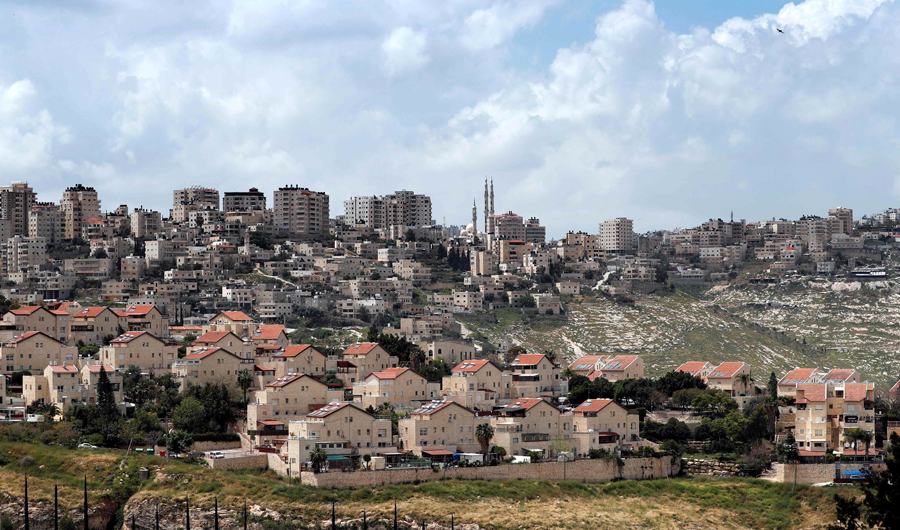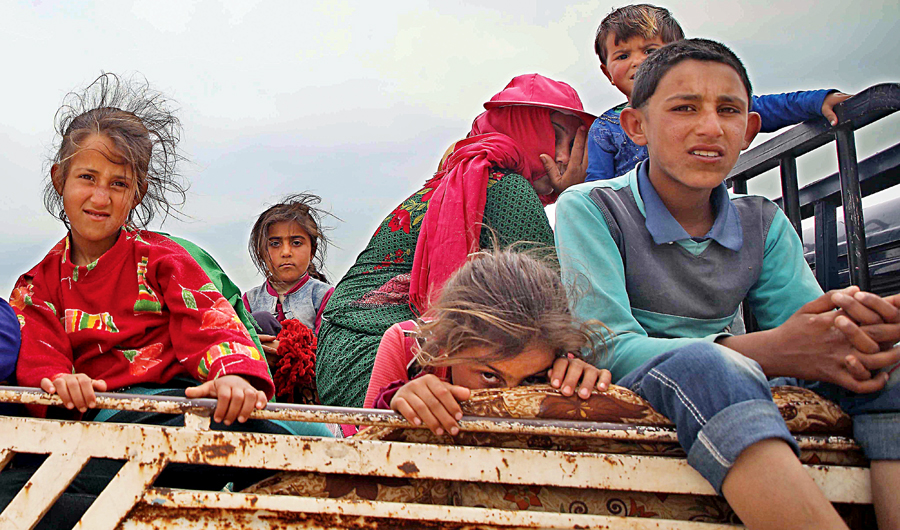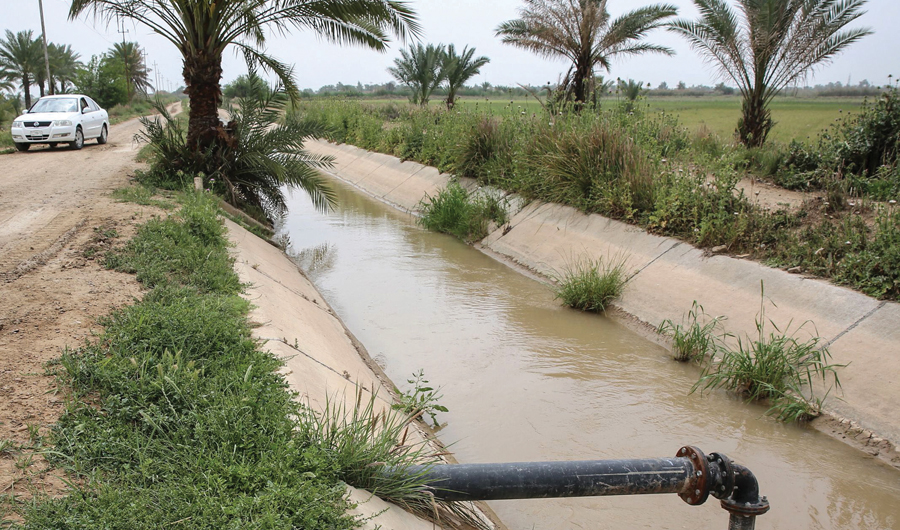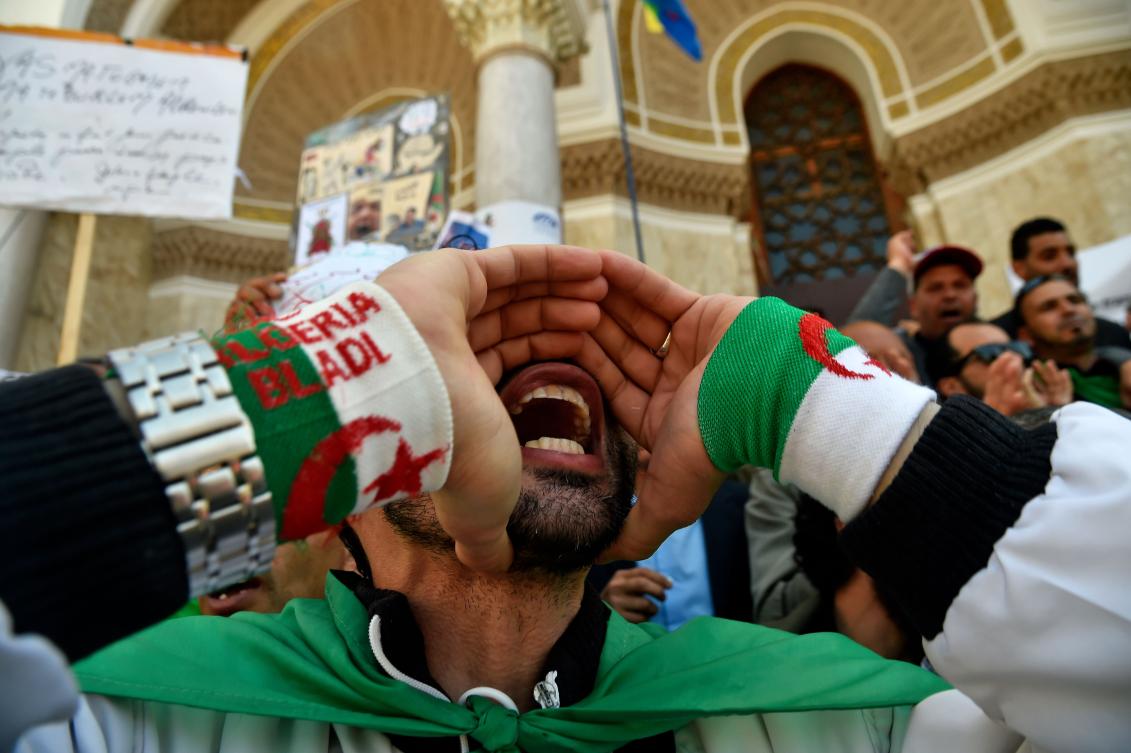Turkey detains dozens as protests mark May Day rally
ISTANBUL, ANKARA: Istanbul police detained dozens of people who were trying to hold a May Day rally at city center square on Wednesday in defiance of a protest ban.
Some 127 people were detained attempting to make their way to an unauthorized demonstration at Taksim Square, a traditional focal point of protest in the city, according to Istanbul police, who barricaded nearby roads including the bustling Istiklal Avenue.
Protesters were pinned roughly to police vehicles during the arrests, AFP correspondents said, while tourists in the area were also subjected to baggage searches.
The annual workers’ holiday is often marked by confrontation between demonstrators and police.
Several thousand people were able to attend an officially approved event in the Istanbul district of Bakirkoy, including members of workers’ unions and opposition political parties, a correspondent said.
Istanbul election
Tensions are heightened in Istanbul after March 31 local elections.
The opposition’s Ekrem Imamoglu narrowly defeated the candidate of President Recep Tayyip Erdogan’s ruling Justice and Development Party (AKP) to become Istanbul mayor but the AKP has officially requested a rerun of the vote in the city.
One of the protesters taking part in Bakirkoy, Mustafa Comert, said Turkey was at “at a turning point, that change has begun.”
He added: “This May 1 will be even more beautiful. It is obvious that this is a consequence of the elections.”
Planned May Day rallies in Sanliurfa, southeastern Turkey, were marred when a bus carrying workers from the southern province of Kahramanmaras overturned, killing five people and injuring 12, state news agency Anadolu reported.
Poll setbacks
A month after local elections which saw it lose control of Turkey’s two largest cities, officials in AKP are questioning an alliance with nationalists which some blame for one of its biggest electoral setbacks.
Under a deal between AKP and the smaller Nationalist Movement Party (MHP), the nationalists fielded no mayoral candidate in the capital Ankara or Istanbul in the March 31 vote, and the AKP stood aside in other regions.
But the deal failed to prevent the secularist Republican People’s Party, which had a similar pact with other smaller opposition parties, winning the mayoralty in both cities, ending a quarter century of control by the AKP and its predecessors.
The AKP is still challenging its narrow loss in Istanbul, Turkey’s largest city and business hub where Erdogan himself served as mayor before the party swept to power nationally in 2002. It has dominated Turkish politics ever since.
While the Istanbul appeal drags on, the rare defeat has prompted questions within the party over campaign strategy. Although the alliance helped them win a majority of votes nationwide, AKP officials say it has delivered limited benefits.
“The MHP gained a lot from this alliance, more than us,” a senior AKP official in Ankara told Reuters.
Another AKP official said the MHP’s 71-year-old leader Devlet Bahceli, once a staunch critic of Erdogan, was an unpredictable ally.
The AKP relies on the MHP for its parliamentary majority, meaning any break in the pact would leave it looking for new partners — a significant challenge after Erdogan’s blistering criticism of his opponents during the campaign.
Fracture
But that has not stopped talk of a split. The senior official said that if Turkey’s electoral board rules against a re-run of the Istanbul vote requested by the AKP, there was little incentive to maintain the alliance.
“Depending on the decision, the fate of the alliance will be determined. It is not possible to say where the alliance will go in the short-term, but the fracture has become noticeable now,” he said.
An MHP official said that while differences with the AKP were emerging in public, the nationalists would not be the side to end what the parties have called their “People’s Alliance.”
Bahceli said he remained committed to the pact. “This is our basic choice, our national and strategic goal,” he said in a statement on Wednesday. “There is undoubtedly no need to search for other alliances.”
The stunning setbacks for the AKP in Ankara and Istanbul prompted sharp public criticism last week from a politician once at the heart of Erdogan’s administration.
Former AKP prime minister Ahmet Davutoglu condemned his party’s alliance with the nationalists, saying it was damaging “both in terms of voter levels and the party’s identity.”
Davutoglu, who served as premier between 2014 and 2016, also slammed the AKP’s economic policies, media restrictions and the damage he said it had done to the separation of powers and Turkey’s institutions.
Since the election, Erdogan has appeared to downplay the significance of the MHP, pointing to its 7 percent share of the vote. Bahceli said the remarks were “unfair and unjust,” given that his party had chosen not to stand in Turkey’s three largest cities.
After CHP leader Kemal Kilicdaroglu was physically attacked at a soldier’s funeral last month, Erdogan struck a more conciliatory tone with a call for unity.
“On matters that concern the survival of our country, we must move all together with 82 million as the TURKEY ALLIANCE, putting aside our political differences,” he tweeted.
Analysts say his reference to national unity may be largely rhetorical, and the opposition says it rings hollow after he repeatedly accused the CHP and its Iyi (Good) Party allies during the election campaign of supporting terrorism.
“Some people within the AKP are doing self-critism. This bothers Erdogan. How could a person who can’t even tolerate self-criticism within his own party preach democracy?” CHP Deputy Chairman Muharrem Erkek said. “His own words show he is not sincere in the ‘Turkey Alliance’ rhetoric.”
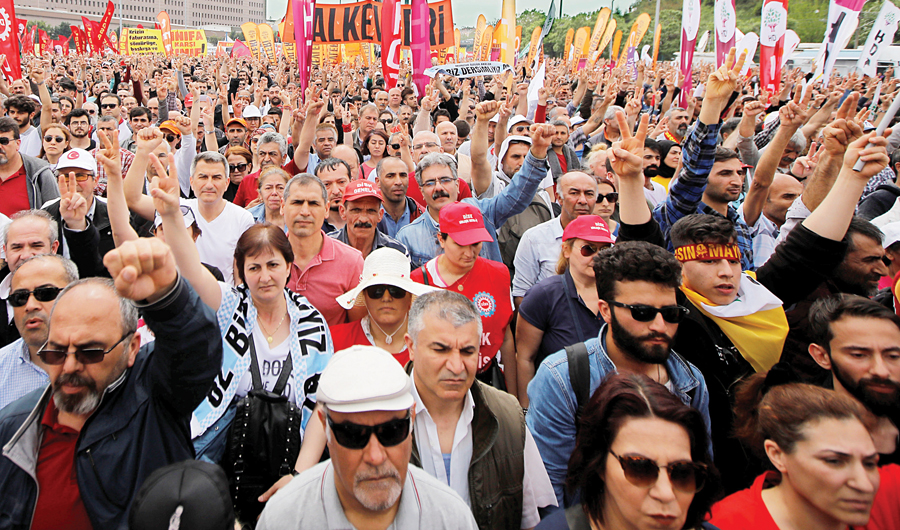
Turkish police block Armenian ‘genocide’ rally in IstanbulErdogan’s AKP loses Ankara in poll, opposition claims Istanbul too
